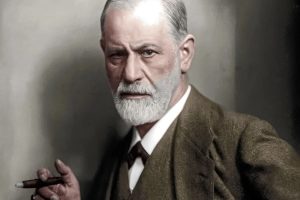
As far as my information is concerned, ‘Africa is a Country’ (and not the continent with 55 countries) is a website of “opinion, analysis and new writing on and from the African Left which was founded back in 2009”. There is no denying the fact that Africa is at present a “continent of 55 countries that are diverse culturally and geographically. It is diverse because Africa is big, as big as the combined landmass of China, the United States, India, Japan and much of Europe.” Africa is also a continent with huge and diverse economic and cultural potentials that would surpass any continent on earth, and with the right conditions, could catapult the continent to the leading ranks of global superpowers.
It is therefore legitimate to dream of Africa as one united country although the dream may feel like an unrealizable myth because all myths looked unrealistic at the beginning and were justified only when they aligned with realities. The possibility of Africa becoming one country is not a myth but a reality, however distant it may be in the future. This is what those other mythologies have achieved. Much of European countries have their own myths of creation. African countries have also their own myths of original creation. There is no reason why they cannot have their myth of resurrection or renaissance or rising from the ashes like the mythological bird.
According to available information, The Yoruba people of Nigeria attribute their myth of creation that says, “In the beginning there was only the sky above, water and marshland below. The chief God Olorun ruled the sky and the goddess Olokun ruled what was below. Obatala, another god, reflected upon this situation, and then went to Olorun for permission to create dry land for all kinds of living creatures to inhabit.”
Whether the above creation myth is true or not, the ancient Yoruba people of Nigeria conceived the creation of the sky and the land as something performed by their gods. A myth is important for its literal meaning but for its symbolism representing the origins of a real event. Whether the Yoruba myth of creation is real or not it has given an explanation for the origin of the world including that of the land of the Yoruba which is present day Nigeria.
Myths are not common nowadays because the so-called European rationalism has taken over ancient mythologies and sought to explain every phenomenon with plausible cause and effect. By the same token the idea of conceiving ‘Africa as a single country’ might now sound a myth than a reality although it has the potential of becoming a reality at some point in the distant future. Yet there is nothing wrong in dreaming now about Africa as a single country.
This is not in fact a new idea as Africans both as individuals and as independent countries have always dreamt about their continent as a single united entity. Africa may be geographically, culturally and environmentally diverse but spiritually Africans conceive themselves as belonging to common ancestries and common spiritual legacy that may called the ‘African Spirit’.
Africa is not at all a geographic notion. It is a spiritual entity of belongingness to one supreme creator and then the African founding gods whether or not expressed in myths, who lived no farther than Ethiopia’s Afar region where Lucy emerged as the first human being although this fact is being disputed nowadays by some revisionist anthropologists. It is therefore better to think of Africa as the spirit of common creation and common destiny.
Looking at continents and countries as a conglomeration of people and geography is basically a euro-centric point of view that denies the existence of people and nations as originating in myths that explained their genesis before they become realties. Africa has always been a victim of foreign conquests while it has never conquered any region or any people. Its history is a history of subjugation and marginalization. It is therefore legitimate to think of Africa as the spirit of survival that has always refused to die in the face of the euro-centric view of the world as originating in Europe through what they call the civilization of the white man.
It is often said that the idea of African unity or union, in whatever form it is presented, is something born in the minds of the people who harbor it. An idea becomes a reality when the right time comes for it. As a German philosopher once said, an idea becomes a material force when it grips the masses, that is to say the people who grasp its significance. Back in the 1960s, at the time of Africa’s independence against colonialism, the idea of organizing Africa as a single united entity, as a kind of confederation of independent states, was espoused by the likes of Kwame Nkrumah and his colleagues.
Nkrumah, as it is well-known, opted for a United States of Africa. Other prominent and African leaders and intellectuals held the opposite view that Africa was not yet ready or mature enough to achieve the proposed union or the vision of One Africa. There are still advocates of ‘One Africa Now’ versus ‘One Africa Tomorrow’, if we can put the issue in such terms. Yes, we establish a united Africa as one country versus no, we cannot do so because Africa is not yet ripe for such a hasty union.
Obviously, there are factors that support both views. The advocates of One Africa Now may get inspiration from the process of economic integrations that are taking place outside the African continent, the creation of the European Union being one of them. The other factor might be the emergence of big continents with large populations as potential economic and political superpowers as India and China have recently proved.
The other factor that may encourage the protagonists of One Africa Now to push their agenda more vigorously may be the fact that the more African countries remain separated, the more they becomes victims of neocolonial machinations that are keeping the continent divided. A united Africa might become another headache to global powers that are already facing the threats of Chinese, Russian and Indian rising to the status of economic and military superpowers.
Advocates of ‘One Africa Tomorrow’ may not have a clear agenda for unity at certain point in time. They generally look at the time table for African economic integration by 2063 as the African Union visualizes it as being a stepping stone for the continent’s unity in the more remote future. One of the point the advocates of African integration now raise in defense of their position is the fact that Africa at present, does not enjoy the economic status or standard that European countries enjoyed when they decided to form a singly monetary union.
Step by step regional integration of African might be another viable strategy but the process is often too slow to warrant confidence as regional integration attempts have sometimes ended up in miserable dissolution and those that are still alive have done little to expedite the continent’s full integration. Moreover the post-colonial reality in Africa being more conducive to divisions, tribalism conflicts, and instability the political environment has hardly been conducive for the establishment of the much-coveted Africa’s total union that has now become a remote possibility.
The United States of America became one single country 200 years ago. Europe is not yet a single country but it is on the way as it has completed the critical phase of economic union by creating a single currency and an integrated market with all its legal and institutional trappings. Many other countries and regions are seeking similar integrationist path to their development. Currently, it was recently announced that more than 40 countries are seeking membership to what is known as BRIC’s economic entity as these countries are seeking to achieve independence from the global single currency system dominated by the US dollar and are presently working for more justified alternatives.
The dream of Africa as a single country may have other advantages too. It is like dreaming of Africa as being as powerful as the superpowers, devoid of tribal conflicts and territorial claims and counter-claims that are largely the makings of European colonialism. Thinking and acting as one Africa is tantamount to thinking of Africans as one people united in nothing other than being Africans alone where racial, ethnic and tribal identities are overcome and peace is built on African wisdom and not on something imposed from outside the continent.
This may sound like myth-making at present but there will certainly come a time when myths justify realities and Africa will certainly rise from the ashes of the post-colonial world of inequality, oppression, and subjugation to claim its rightful place in the community of nations. What is wrong with this kind of myth-making or dreaming? We have already seen that Africans can overcome adversities whenever they think and act in unison or as a single country. The spirit of Africa and the spirit of Nkrumah are still alive and kicking.
BY MULUGETA GUDETA
The Ethiopian Herald July 30/2023





